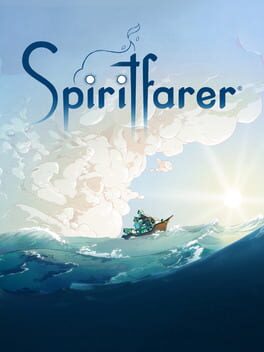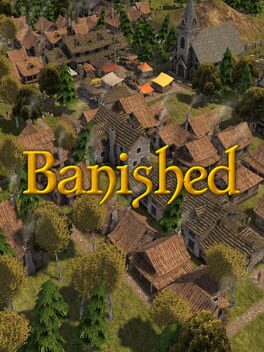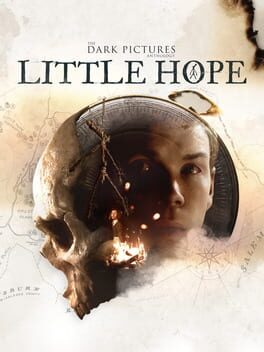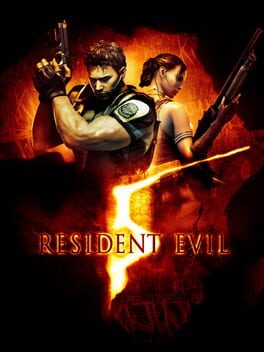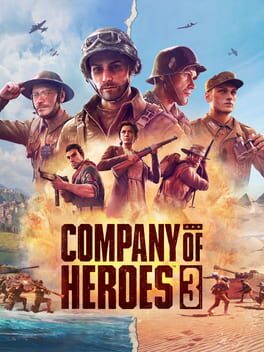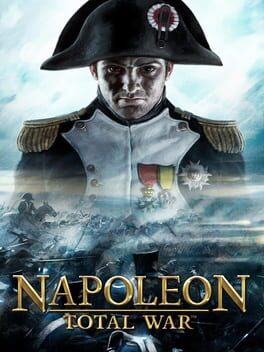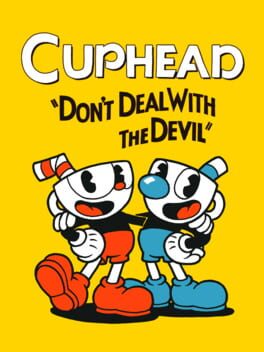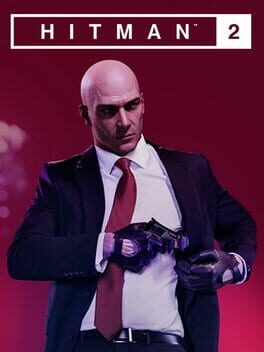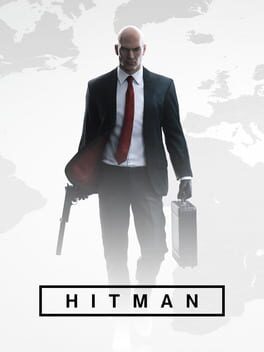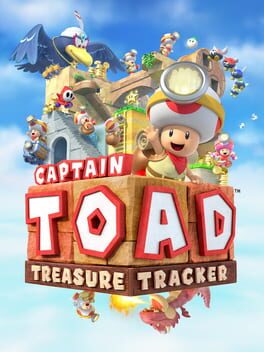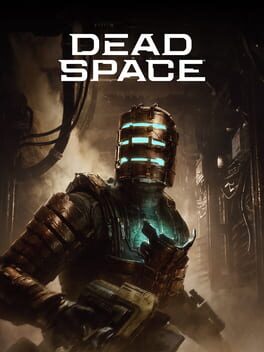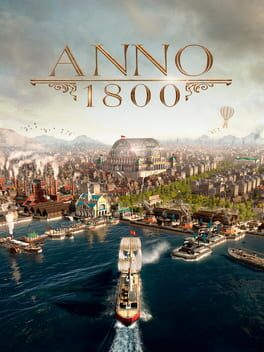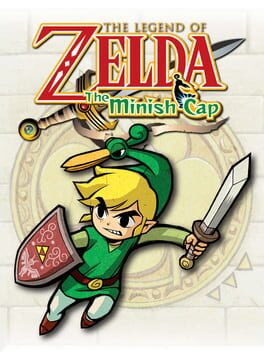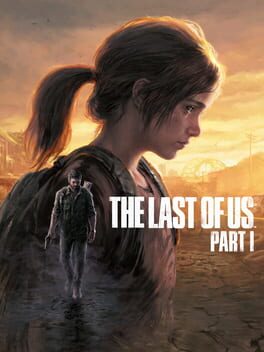Turbo_Sven
BACKER
2020
A cozy little game that wrestles with death and regret whilst letting you soar the oceans in a soothing and sublime fashion. The game is incredible relaxing and the art style is just gorgeous. The gameplay loop is very satisfying and if you like management typ games, then you'll always have stuff to do. The writing is really good and all the lost spirit passengers you encounter throughout your journey are really memorable as each explore different aspects of pain, sorrow, regret, acceptance and ultimately, death itself. The game manages to create a very special feeling of sadness and emptiness whenever a spirit is brought to the great beyond. You genuinely do start to miss them while at the same time being happy that you got spend time with them at all. Which is kind of the point of the game, really. To cherish the time you have with friends and loved ones, while you have it.
The only complaint I have is that it does start to drag a bit in the late game when you're inventory is set for ten lifetimes and you're pretty much just killing time to activate the next quest. Otherwise this game is great and I would highly recommend that you give this a try. I miss it already, and I finished it just mere minutes ago.
The only complaint I have is that it does start to drag a bit in the late game when you're inventory is set for ten lifetimes and you're pretty much just killing time to activate the next quest. Otherwise this game is great and I would highly recommend that you give this a try. I miss it already, and I finished it just mere minutes ago.
2014
It's a solid city builder game that can be quite difficult if you're not careful early on. The gameplay loop is satisfying as you actually get to see your little community grow and prosper in a very natural way. There's not a whole lot to do in the game so once you start snowballing, you're pretty much done. The population growth is very organic and nicely simulated as every citizen actually has to be born and grow up before they can be put to work. This can however make the game really tedious if you have a huge death wave early on, because then you just have to sit idly by for a long time as your population bounces back to normal again. Overall it's a good city builder game if you're looking for more of a challenge, but it lacks replayability in my opinion since there isn't a whole lot of different things to do. So every playthrough is probably going to be more or less the same in the end. Maybe I'll play it again in the future some time, who knows. All I know right now is that I'm done with the game and I'm satisfied with what it had to offer, even if it wasn't that much.
This review contains spoilers
The Dark Pictures Anthology games are great for when you have a good group of friends with you, and not so much fun if you're alone. Little Hope is no exception in this regard. It's better than its predecessor, Man of Medan, but not quite as good as House of Ashes, which is my favorite of the four. However, there are some fundamental flaws with the game that I feel is holding this one back from being number one. The main problem is the locked-traits mechanic, in my opinion. In order to probably explain my point, we first have to dig into the story.
Little Hope follows a group of four college students and their teacher as their bus crashes outside an abandoned town during a field trip. After the crash the bus driver has mysteriously vanished and the group has to explore a nearby abandoned town to find help and locate the missing bus driver. During their journey through the town, the group are beset by 15th century spirits that lived through Salem-esque witch trial, and they all look like doppelgangers of the group. In the end it is revealed in a twist that the main character Andrew (Will Poulter) has been the bus driver all along and that everything about the witch trials and the group of students were all in his head. The point of the story is that Andrew is struggling with severe trauma that he got in his teenage years when his entire foster family burned alive in an accident, (who are also doppelgangers of the student group) which is the prologue and tutorial of the game.
So what does the locked-traits mechanic have to do with any of this? Every character in the game starts with a locked-trait that is tied to a negative personality trait that the corresponding character had in the prologue. The entire point of the story is that Andrew is fighting his inner demons and to overcome them, each character has to unlock his or hers negative locked-trait by playing the character in the opposite direction. So for instance, John is a distant alcoholic father that runs away from his problems during the prologue. So in order to unlock his negative trait, you have to make sure that he is compassionate, heroic and stay away from the booze. If you fail to do this, the character dies in the end no matter what you do.
And here in lies my main issue with Little Hope. The locked-trait mechanic is never really explained during the game, because that would spoil the twist ending. So at the end of my first playthrough pretty much everybody died in the end, despite our best efforts and everything was revealed to be fake. This made the ending of my first playthrough extremely anticlimactic. Upon further playthroughs, I've come to appreciate the more psychological aspects of the overall story and think it's an interesting way to explore trauma. But I still think it's a fundamental flaw that the central mechanic that decides your ending can't be properly explained because it would spoil the story. Why would you design your game so that the most important piece of information to beat the game is only revealed after you've already lost?
Besides this, Little Hope offers the same janky choose your own horror adventure like the rest of the Dark Pictures games. It's definitely one of the more interesting ones storywise, in my opinion. If you have a group of friends with you, I would recommend you give this a try. Or actually, since this review is riddled with spoilers, chances are that if you're reading this then you've already played it. In which case I would recommend giving it a second chance if you haven't.
Little Hope follows a group of four college students and their teacher as their bus crashes outside an abandoned town during a field trip. After the crash the bus driver has mysteriously vanished and the group has to explore a nearby abandoned town to find help and locate the missing bus driver. During their journey through the town, the group are beset by 15th century spirits that lived through Salem-esque witch trial, and they all look like doppelgangers of the group. In the end it is revealed in a twist that the main character Andrew (Will Poulter) has been the bus driver all along and that everything about the witch trials and the group of students were all in his head. The point of the story is that Andrew is struggling with severe trauma that he got in his teenage years when his entire foster family burned alive in an accident, (who are also doppelgangers of the student group) which is the prologue and tutorial of the game.
So what does the locked-traits mechanic have to do with any of this? Every character in the game starts with a locked-trait that is tied to a negative personality trait that the corresponding character had in the prologue. The entire point of the story is that Andrew is fighting his inner demons and to overcome them, each character has to unlock his or hers negative locked-trait by playing the character in the opposite direction. So for instance, John is a distant alcoholic father that runs away from his problems during the prologue. So in order to unlock his negative trait, you have to make sure that he is compassionate, heroic and stay away from the booze. If you fail to do this, the character dies in the end no matter what you do.
And here in lies my main issue with Little Hope. The locked-trait mechanic is never really explained during the game, because that would spoil the twist ending. So at the end of my first playthrough pretty much everybody died in the end, despite our best efforts and everything was revealed to be fake. This made the ending of my first playthrough extremely anticlimactic. Upon further playthroughs, I've come to appreciate the more psychological aspects of the overall story and think it's an interesting way to explore trauma. But I still think it's a fundamental flaw that the central mechanic that decides your ending can't be properly explained because it would spoil the story. Why would you design your game so that the most important piece of information to beat the game is only revealed after you've already lost?
Besides this, Little Hope offers the same janky choose your own horror adventure like the rest of the Dark Pictures games. It's definitely one of the more interesting ones storywise, in my opinion. If you have a group of friends with you, I would recommend you give this a try. Or actually, since this review is riddled with spoilers, chances are that if you're reading this then you've already played it. In which case I would recommend giving it a second chance if you haven't.
2009
One of the best co-op experiences out there in my humblest of opinions. It's one of the last split-screen enabled narrative co-op games before they sadly became a rarity, and it's a lot of fun both with a pal and without. Sure, it's not a perfect game and it does mark the point when the franchise started to lean a bit to much into the action genre. A lean which Resident Evil 6 would take to the extreme as it crashed and burned down into the gutter, forcing Capcom to make a heel turn for the better with Resident Evil 7: Biohazard. But that's a review for another time.
Resident Evil 5 is an actionfueled romp of a game that brings the usual campiness the franchise is kind of known for. Chris and Sheva make for a nice duo and Albert Whiskers is such a fun villain to watch. The gameplay does suffer occasionally from the usual QTE-gameplay that the Xbox 360/PS3 era peddled pretty hard. It also tries to dive into the exploitation of Africa, which is an interesting direction, but I feel like this particular game isn't well equipped to tackle the topic in the most nuanced way. But it doesn't really have to be either, since the main point is to just shoot some monsters with a friend and have a good time. And on that point it delivers.
Resident Evil 5 is an actionfueled romp of a game that brings the usual campiness the franchise is kind of known for. Chris and Sheva make for a nice duo and Albert Whiskers is such a fun villain to watch. The gameplay does suffer occasionally from the usual QTE-gameplay that the Xbox 360/PS3 era peddled pretty hard. It also tries to dive into the exploitation of Africa, which is an interesting direction, but I feel like this particular game isn't well equipped to tackle the topic in the most nuanced way. But it doesn't really have to be either, since the main point is to just shoot some monsters with a friend and have a good time. And on that point it delivers.
2023
It's been quite a while since I last played a Company of Heroes game and it feels good to have a more modern one. When I said modern, I of course mean graphically and technologically, since the gameplay is more or less the same as in the older titles. Which isn't a bad thing at all since the gameplay is what made CoH 1 & 2 so damn fun in the first place. I thought the new grand Italian campaign was really fun and opened up the game for new levels of strategy. I'm a strong believer in that giving the player lots of options goes a long way when it comes to making fun strategy games and the new grand campaign offers just that.
However the usefulness vary greatly between all these new tools that are at your disposal. The navy was a nice edition to offer naval bombardments during battles, but other than that it wasn't really worth recruiting ships since the AI doesn't have a strong navy anyway. Airplanes was nice as well for bombing the enemy, just like with the navy. The different emplacements though was complete garbage. They were designed to be defensive weapons in a campaign where you are constantly on the offensive. So they were always out of range and cost to much movement points to reposition all the time. I never really bothered with them and it didn't impact my campaign or experience in the slightest.
I also feel like the campaign was perhaps a little to long. There's a lot of settlements and about half of them was just regular skirmish battles that grew stale after about half the campaign. Especially since you pretty much played with the same roster over and over again. I would've liked there to be a few more story based missions to break up a lot of the monotony that comes from playing regular skirmish battles over and over again. Or at least one or two other forms of skirmishes where you could for example assault a heavily fortified position or something. I was also surprised when the final battle didn't turn out to be Rome itself, which caught me off guard and felt somewhat anti-climactic. The North Africa campaign was fine but not that exciting in the end. It's just 8 story missions that you can play through pretty quickly since a lot of them aren't really that difficult.
I didn't try the multiplayer because I usually prefer to play against people I know and none of my friends currently own this game. But overall it offers a pretty solid, albeit slightly flawed single-player experience that I don't regret playing, but I will probably never play through it again. It's really just a nice single-serving Company of Heroes experience that you consume and then discard afterwards. Perhaps I will pick it up again if they offer a new campaign or if I decide to try out the multiplayer. But from what I've seen of their current dlc plans, I won't be holding my breath anytime soon.
However the usefulness vary greatly between all these new tools that are at your disposal. The navy was a nice edition to offer naval bombardments during battles, but other than that it wasn't really worth recruiting ships since the AI doesn't have a strong navy anyway. Airplanes was nice as well for bombing the enemy, just like with the navy. The different emplacements though was complete garbage. They were designed to be defensive weapons in a campaign where you are constantly on the offensive. So they were always out of range and cost to much movement points to reposition all the time. I never really bothered with them and it didn't impact my campaign or experience in the slightest.
I also feel like the campaign was perhaps a little to long. There's a lot of settlements and about half of them was just regular skirmish battles that grew stale after about half the campaign. Especially since you pretty much played with the same roster over and over again. I would've liked there to be a few more story based missions to break up a lot of the monotony that comes from playing regular skirmish battles over and over again. Or at least one or two other forms of skirmishes where you could for example assault a heavily fortified position or something. I was also surprised when the final battle didn't turn out to be Rome itself, which caught me off guard and felt somewhat anti-climactic. The North Africa campaign was fine but not that exciting in the end. It's just 8 story missions that you can play through pretty quickly since a lot of them aren't really that difficult.
I didn't try the multiplayer because I usually prefer to play against people I know and none of my friends currently own this game. But overall it offers a pretty solid, albeit slightly flawed single-player experience that I don't regret playing, but I will probably never play through it again. It's really just a nice single-serving Company of Heroes experience that you consume and then discard afterwards. Perhaps I will pick it up again if they offer a new campaign or if I decide to try out the multiplayer. But from what I've seen of their current dlc plans, I won't be holding my breath anytime soon.
2010
I've been a huge total war fan for most of my life. I've played most of the games except for a few certain ones, this being one of them. For some reason I've been putting off playing this one for years. Probably because I usually play Empire Total War or Fall of the Samurai instead when I feel like playing a gun focused total war game. I feel like these three games complement each others weaknesses really well. But none of them really scratch that specific itch perfectly.
Napoleon Total War is a good game, but it feels a little unfinished. Fort battles are still a buggy mess but at least they made them far and few between. This of course doesn't fix the problem, just merely sweeps it under the rug. It makes the game more enjoyable but I would've appreciated more effort in making fort battles actually work. Beyond that I would say that the AI is a bit more competent here than in Empire Total War, but it's still pretty dumb. You pretty much play every battle exactly the same way, which can become a bit tedious after a while.
Compared to Empire Total War, the battles certainly feels more polished, but I miss the grand-scale and sandboxy campaign of Empire Total War. These narrow focused Saga-esque campaigns feel a bit too restricted, in my opinion.
Lastly, I wanna touch upon the naval part of the game for a bit. I really wish that navies were better implemented into the campaign side of the game. I really like naval battles, but you rarely have the opportunity to play them since there is little reason to invest in a strong navy. Fall of the Samurai got it right with the bombardment mechanic which made a strong navy not only useful, but necessary to defend your settlements. In this game (and Empire) you only use them to transport armies across water, which you almost never have to do.
It's a good game and a somewhat improvement over Empire Total War in some areas. But it still needs a few tweaks here and there and a bit more polish.
Napoleon Total War is a good game, but it feels a little unfinished. Fort battles are still a buggy mess but at least they made them far and few between. This of course doesn't fix the problem, just merely sweeps it under the rug. It makes the game more enjoyable but I would've appreciated more effort in making fort battles actually work. Beyond that I would say that the AI is a bit more competent here than in Empire Total War, but it's still pretty dumb. You pretty much play every battle exactly the same way, which can become a bit tedious after a while.
Compared to Empire Total War, the battles certainly feels more polished, but I miss the grand-scale and sandboxy campaign of Empire Total War. These narrow focused Saga-esque campaigns feel a bit too restricted, in my opinion.
Lastly, I wanna touch upon the naval part of the game for a bit. I really wish that navies were better implemented into the campaign side of the game. I really like naval battles, but you rarely have the opportunity to play them since there is little reason to invest in a strong navy. Fall of the Samurai got it right with the bombardment mechanic which made a strong navy not only useful, but necessary to defend your settlements. In this game (and Empire) you only use them to transport armies across water, which you almost never have to do.
It's a good game and a somewhat improvement over Empire Total War in some areas. But it still needs a few tweaks here and there and a bit more polish.
2017
The obvious thing to start of with is the incredible charming and cute art style. They really nailed the old Steamboat Willie Disney both visually and auditory. It gives the game an astronomical amount of personality and the variety in enemies and level design keeps the game fresh and exciting throughout.
The cliché is to call this the Disney version of Dark Souls, which I feel does a disservice to both Cuphead and Dark Souls. The only thing they have in common is a similar approach to difficulty and boss design. That's about it. What I mean by this is that both games approach boss design by making it difficult but ultimately fair. Every boss can be beaten without taking damage with enough skill and, most importantly practice. This makes it less frustrating when you fail because you tend to blame yourself rather than the game being unfair. "If I hadn't jumped at that time then I would've probably done it" or "I need to make sure to not get greedy after he does that particular attack" are just some of the reasonings you employ after a fair and honest defeat in order to improve and, pardon my french, git gud.
One gripe I have with the game is that the parry mechanic seems to be slightly bugged during co-op. I played this with my brother and everytime we tried to parry the same object at the same time, one of us simply didn't. This made it very frustrating during certain levels when you had to parry something in order to make a particular jump or avoid an attack. Whether this is intentional or just an oversight, nevertheless it made the game feel less adapted to cooperative play rather than singleplayer.
I also feel like the majority of the weapons and abilities that you could buy in the shop was not very useful. As soon as you got 'chaser' and didn't have to aim anymore, that was it for all other weapons since you usually have to be on the move for most bosses. I'll admit that this can just as easily just be me and my particular playstyle, or the fact that I played this in co-op.
Overall though, it's a great game that I would highly recommend. It's a super charming delight for both your visual and auditory senses, and with a fair but challenging difficulty the gameplay excels in a the right ways. It's a fantastic game for local co-op, something that sadly has become more and more rare with time; though the cooperative side just needs a few tweaks when it comes to how the parry mechanic works. Get this if you can!
The cliché is to call this the Disney version of Dark Souls, which I feel does a disservice to both Cuphead and Dark Souls. The only thing they have in common is a similar approach to difficulty and boss design. That's about it. What I mean by this is that both games approach boss design by making it difficult but ultimately fair. Every boss can be beaten without taking damage with enough skill and, most importantly practice. This makes it less frustrating when you fail because you tend to blame yourself rather than the game being unfair. "If I hadn't jumped at that time then I would've probably done it" or "I need to make sure to not get greedy after he does that particular attack" are just some of the reasonings you employ after a fair and honest defeat in order to improve and, pardon my french, git gud.
One gripe I have with the game is that the parry mechanic seems to be slightly bugged during co-op. I played this with my brother and everytime we tried to parry the same object at the same time, one of us simply didn't. This made it very frustrating during certain levels when you had to parry something in order to make a particular jump or avoid an attack. Whether this is intentional or just an oversight, nevertheless it made the game feel less adapted to cooperative play rather than singleplayer.
I also feel like the majority of the weapons and abilities that you could buy in the shop was not very useful. As soon as you got 'chaser' and didn't have to aim anymore, that was it for all other weapons since you usually have to be on the move for most bosses. I'll admit that this can just as easily just be me and my particular playstyle, or the fact that I played this in co-op.
Overall though, it's a great game that I would highly recommend. It's a super charming delight for both your visual and auditory senses, and with a fair but challenging difficulty the gameplay excels in a the right ways. It's a fantastic game for local co-op, something that sadly has become more and more rare with time; though the cooperative side just needs a few tweaks when it comes to how the parry mechanic works. Get this if you can!
2018
More or less the same as the last game but with more maps to explore, which isn't a bad thing in the slightest. The story still feels very inconsequential and I haven't been paying attention to it at all. But that doesn't matter since the heart of the game is still its level design, which is just as great, intricate and expansive as in Hitman (2016).
My favorite maps were definitely Isle of Sgail, Mumbai and Whittleton Creek. Isle of Sgail had such a dark and gloomy aesthetic that really harkon to Stanley Kubrick's magnificent 'Eyes Wide Shut', which left me in awe as I moved through the social hierarchies to explore more of the increasingly vast castle. It's a beautiful map with a lot of interesting stories and fun possibilities.
Much of the same can be said about Mumbai which has a great level design and atmosphere, but where it really shines is in its connectivity between the different targets. The Kashmirian challenge comes to mind was such a fun new way of dispatching your targets to the afterlife. Whittleton Creek, though much smaller in scale and not as interconnected as Mumbai, was such a charming experience. I loved to explore the different houses in order to find vital intel as a new mission objective, which was interesting the first time but gets inreasingly repetitive with each replay as there isn't really any new way of going about it.
I didn't have the chance to play New York or Haven Island since IO decided to withhold the dlc maps for 'Hitman World of Assassination', which is somewhat frustrating. But I guess it gives me additional maps to enjoy when I eventually get to that game. So I will just have to wait a little longer.
My favorite maps were definitely Isle of Sgail, Mumbai and Whittleton Creek. Isle of Sgail had such a dark and gloomy aesthetic that really harkon to Stanley Kubrick's magnificent 'Eyes Wide Shut', which left me in awe as I moved through the social hierarchies to explore more of the increasingly vast castle. It's a beautiful map with a lot of interesting stories and fun possibilities.
Much of the same can be said about Mumbai which has a great level design and atmosphere, but where it really shines is in its connectivity between the different targets. The Kashmirian challenge comes to mind was such a fun new way of dispatching your targets to the afterlife. Whittleton Creek, though much smaller in scale and not as interconnected as Mumbai, was such a charming experience. I loved to explore the different houses in order to find vital intel as a new mission objective, which was interesting the first time but gets inreasingly repetitive with each replay as there isn't really any new way of going about it.
I didn't have the chance to play New York or Haven Island since IO decided to withhold the dlc maps for 'Hitman World of Assassination', which is somewhat frustrating. But I guess it gives me additional maps to enjoy when I eventually get to that game. So I will just have to wait a little longer.
2016
The best Hitman game I've played so far. Every map is an immense stage of intervowen opportunities that just begs to be further explored. The different mission stories are a nice narrative experience, although they can make the missions a bit to easy and hand-holdy. The sheer scale and replayability of the maps more than make up for the smaller selection of different scenarios. Out of all the maps, Sapienza was definitely my favourite. Such a beautiful, dynamic map with such fun and intricate avenues for assassinations. If Hitman 2 and 3 are anything like this one, then I have a lot of exciting assassination missions to explore, plan and execute.
It feels more like a test of concept for the Nintendo 3DS than a fully fledged game worthy of the price tag. It's short and sweet but gets a bit repetitive after a while. I played it with my brother and while it's not well optimized for co-op play, it's still a good time if you just want to relax a bit.
2023
The nightmarish atmosphere of the monster infested steel coffin that is the USG Ishimura is top notch. The moody lightning akin to a modern Doom 3 and the sound effects really makes you paranoid during the early stages of the game. The limb-severing combat is very satisfying and makes for some new interesting challenges when the classic headshot isn't the go to shooter weak spot anymore.
It does however get somewhat repetitive towards the later stages of the game. The overall structure of the gameplay loop and chapters doesn't offer a whole lot when it comes to variety. Every chapter can be summarized as: "go to a new section of the ship to do X, but to do X you need to do Y first." This structure works fine for a while, but after around 9-10 hours it's repetitiveness starts to wear you down. By the end I was starting to get a little impatient for it to be over, which is never a good sign.
Overall it's a decent game, but as a remake it is kind of lackluster. It doesn't really offer anything new to the table that the original didn't do already, which makes me question the need for a remake in the first place. I think my biggest mistake was that I played this right after the Resident Evil 4 Remake which in my opinion is the gold standard of how a remake should be done. The 'Dead Space Remake' however is not.
It does however get somewhat repetitive towards the later stages of the game. The overall structure of the gameplay loop and chapters doesn't offer a whole lot when it comes to variety. Every chapter can be summarized as: "go to a new section of the ship to do X, but to do X you need to do Y first." This structure works fine for a while, but after around 9-10 hours it's repetitiveness starts to wear you down. By the end I was starting to get a little impatient for it to be over, which is never a good sign.
Overall it's a decent game, but as a remake it is kind of lackluster. It doesn't really offer anything new to the table that the original didn't do already, which makes me question the need for a remake in the first place. I think my biggest mistake was that I played this right after the Resident Evil 4 Remake which in my opinion is the gold standard of how a remake should be done. The 'Dead Space Remake' however is not.
2023
2019
This is the best Anno game that has ever been produced. It perfectly satisfies that itch in my brain that yearns for optimized production lines and thorough city planning. It's definitely the most complex Anno game but it has a really nice learning curve. The game starts of simple enough and gradually gives you more and more options as the scope of your playground starts to exceed the bounds of your imagination, forcing you to adept and come up with creative solutions to new emerging challenges. The jump to engineers though can be quite the challenge the first time around, as the introduction of electricity completely revamps your entire production layout. By this point in the game I was quite overwhelmed by the sheer amount of new things and opportunities presented to me. That combines with things like tractors from the 'Bright Harvest' DLC really sells the magnitude of the industrial revolutions impact on production.
Some parts can be quite tedious, like the airship exploration of the Arctic in the 'The Passage' DLC. I also feel like the late-game can easily become somewhat of a slog as the overall progression starts to slow down quite a bit by the sheer volume of things to do. I don't know how much time I've spent trying to balance specific production lines or optimize certain shipping routes to appease my citizens ever-increasing demands. But I do know that I have loved every second of it.
Some parts can be quite tedious, like the airship exploration of the Arctic in the 'The Passage' DLC. I also feel like the late-game can easily become somewhat of a slog as the overall progression starts to slow down quite a bit by the sheer volume of things to do. I don't know how much time I've spent trying to balance specific production lines or optimize certain shipping routes to appease my citizens ever-increasing demands. But I do know that I have loved every second of it.
One of the quintessential games for kids to secretly play in bed when they're supposed to sleep. I certainly spent several nights as a kid playing this over and over again. It's short and sweet as it delivers the classic Zelda formula with vibrant and gorgeous GBA graphics. One thing that Nintendo is very good at, which they prove with every Zelda title, is their ability to not only create new interesting mechanics, but also implement them in truly exploratory ways.
The shrinking mechanic in this is no exception. It may not be the most revolutionary mechanic they've ever conjured up, but it's still well implemented and delivers a fun new perspective on the world. I especially like how two of the games bosses are just regular enemies while you are miniscule.
The kinstones are a bit hit or miss as the usefulness of the rewards are really uneven. It's also really annoying as a completionist that one of the heart pieces is locked behind the figurine collection, which takes a long time to complete. I've had such a nostalgic blast with this game on Switch. It's great that Nintendo is finally showing some love for the GBA games that I grew up with.
The shrinking mechanic in this is no exception. It may not be the most revolutionary mechanic they've ever conjured up, but it's still well implemented and delivers a fun new perspective on the world. I especially like how two of the games bosses are just regular enemies while you are miniscule.
The kinstones are a bit hit or miss as the usefulness of the rewards are really uneven. It's also really annoying as a completionist that one of the heart pieces is locked behind the figurine collection, which takes a long time to complete. I've had such a nostalgic blast with this game on Switch. It's great that Nintendo is finally showing some love for the GBA games that I grew up with.
What can I say about this game that hasn't already been said thousands of times? It's a fantastic game and one of my absolute favorites of all time. Every single thing about this game is great from the gameplay to the story and it's characters. Even though I don't think this game really warranted another remaster so close to the last remaster they did; especially not at such a high price. This is still undeniably the quintessential version of this game out there. It makes all of the older versions completely obsolete.
There has been a lot of talk about how games like 'The Last of Us' are more like interactive movies and how that probably isn't the very best that games as an art medium have to offer; and I do agree with that. However, this form of prestige storytelling is still a genre of games that exists and Naughty Dog are, in my opinion, the best in the industry when it comes to this genre of games. Mostly because they actually utilize the strengths of the medium and combine them with elements of traditional storytelling to really make the best out of both worlds. Like for instance during the tutorial when you learn about gun controls through the decision to mercifully put an infected person out of his misery or not. That is an insane way to teach the player about how to use the gun! And at the same time it shows us the unforgiving nature of this world and how quickly a life can be snuffed out.
This I feel is what makes Naughty Dog masters within their craft. Their ability to tell emotional and heart gripping stories that combine and utilize the best of two art mediums to make something truly extraordinary. I now own three different copies/versions of this game and I couldn't be happier. I love this game and Neil Druckmann and his team really performed a miracle when they managed to top this masterpiece, with an even better masterpiece called 'The Last of Us: Part II'.
There has been a lot of talk about how games like 'The Last of Us' are more like interactive movies and how that probably isn't the very best that games as an art medium have to offer; and I do agree with that. However, this form of prestige storytelling is still a genre of games that exists and Naughty Dog are, in my opinion, the best in the industry when it comes to this genre of games. Mostly because they actually utilize the strengths of the medium and combine them with elements of traditional storytelling to really make the best out of both worlds. Like for instance during the tutorial when you learn about gun controls through the decision to mercifully put an infected person out of his misery or not. That is an insane way to teach the player about how to use the gun! And at the same time it shows us the unforgiving nature of this world and how quickly a life can be snuffed out.
This I feel is what makes Naughty Dog masters within their craft. Their ability to tell emotional and heart gripping stories that combine and utilize the best of two art mediums to make something truly extraordinary. I now own three different copies/versions of this game and I couldn't be happier. I love this game and Neil Druckmann and his team really performed a miracle when they managed to top this masterpiece, with an even better masterpiece called 'The Last of Us: Part II'.
